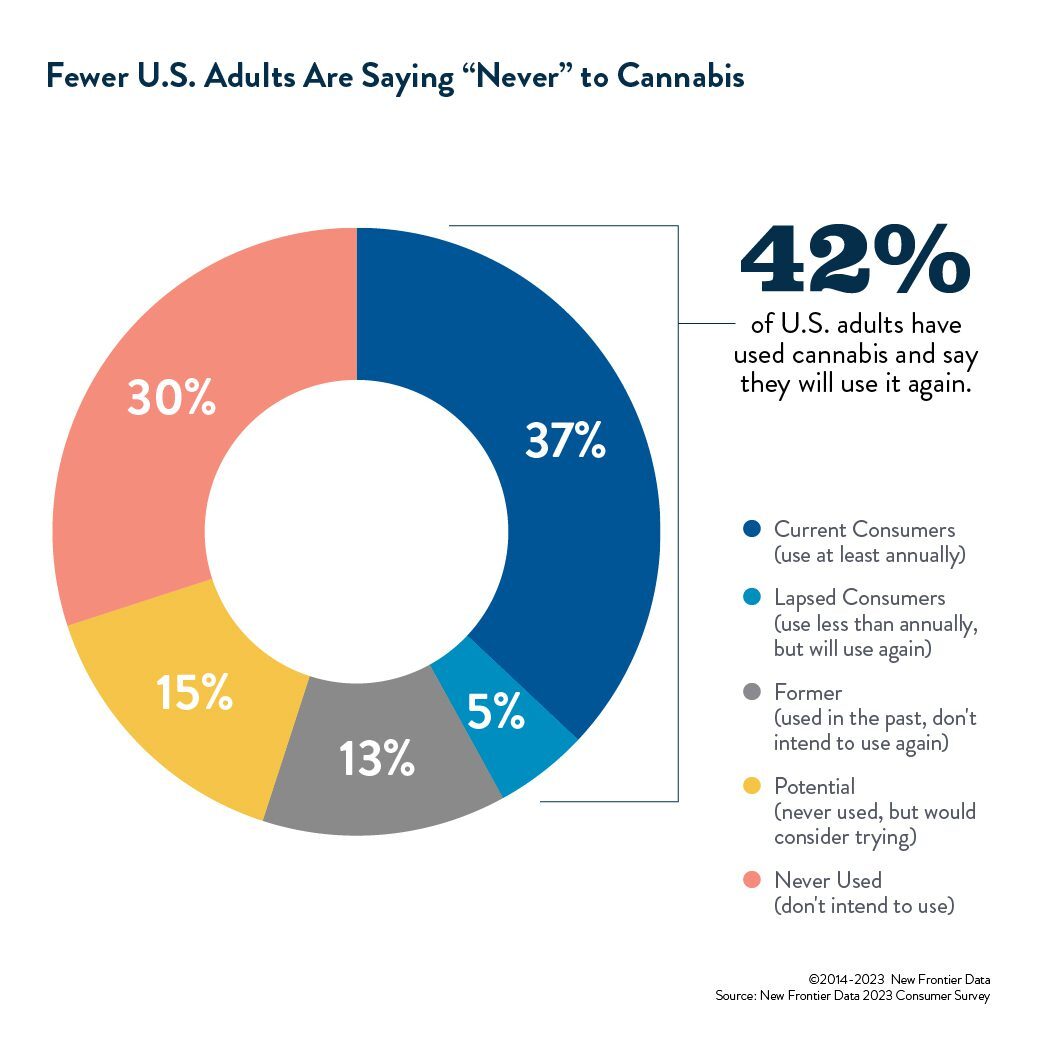The Power of Medical Cannabis in Changing Public Perceptions

Expansion of legalization across U.S. states provides pockets of momentum despite North American M&A activity being down significantly in 2022
April 18, 2023
More than Half of U.S. Adults Have Consumed or are Interested in Trying Cannabis
May 2, 2023By Dr. Molly McCann, Senior Director of Consumer Insights at New Frontier Data
This week New Frontier Data releases Cannabis Consumers in America 2023 Part 1: An overview of consumers today.
The report outlines findings of a recent survey of over 4,300 adult cannabis consumers about their use and purchasing behavior, product preferences and expenditures, and beliefs about cannabis. More than 1,100 non-consumers were also surveyed about potential cannabis use and beliefs about cannabis.
While analyzing the results of the survey, what stood out to me was the continued importance of cannabis’ medical applications—not just to consumers (patients and non-) who rely on it to lead healthier lives, but for its role in legitimizing the plant in the eyes of the non-consuming public.
42% of US adults say they have used cannabis are will likely use it again. 37% of U.S. adults are “current consumers” – those who use at least annually and plan to use cannabis again in the future.
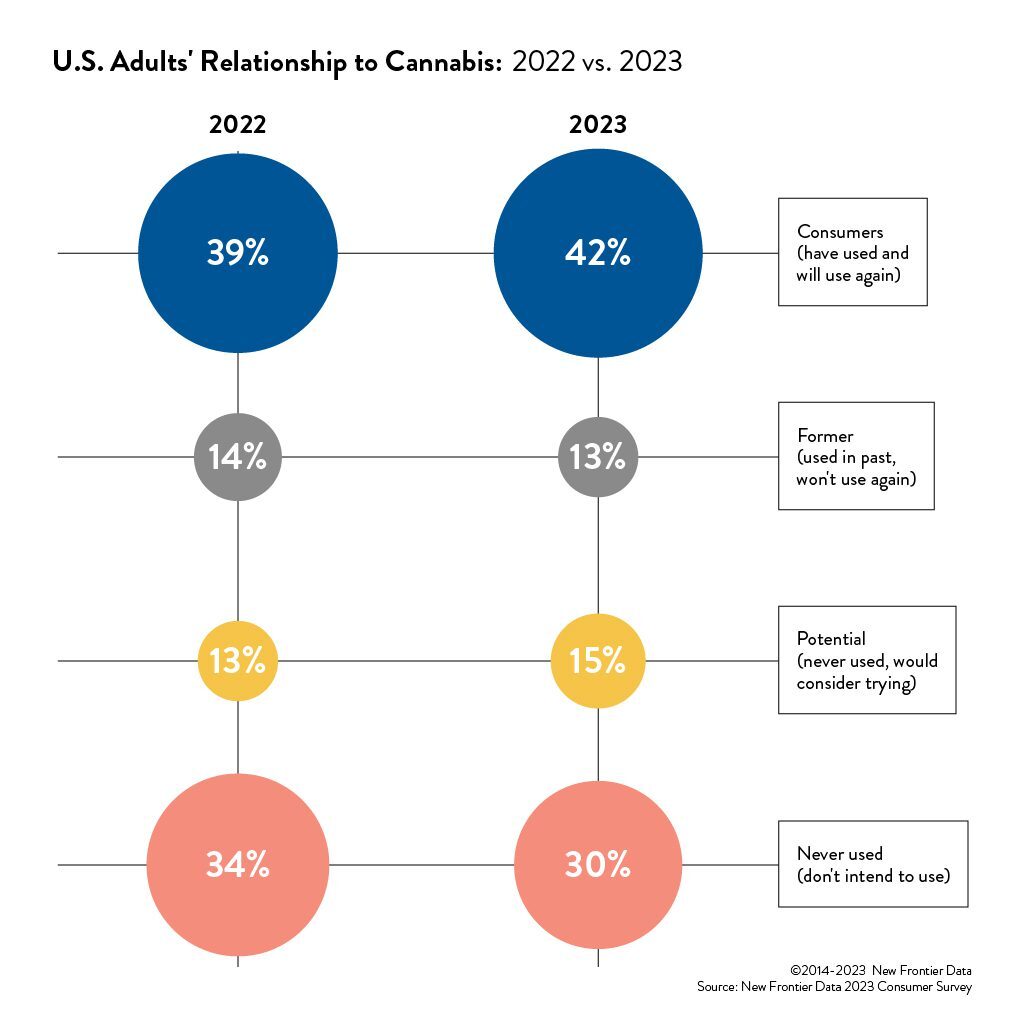
There has been a slight increase in the share of U.S. adults who are cannabis consumers since last year. The share of U.S. adults who say they never have and never will consume cannabis has decreased slightly from last year – down to 30% from 34% – indicating a gradual increase in openness to cannabis, and perhaps bolstered by the de-stigmatization and broader legal access.
Cannabis consumers’ openness about their use—and their success in managing medical conditions with cannabis—has affected the broader narrative about the drug
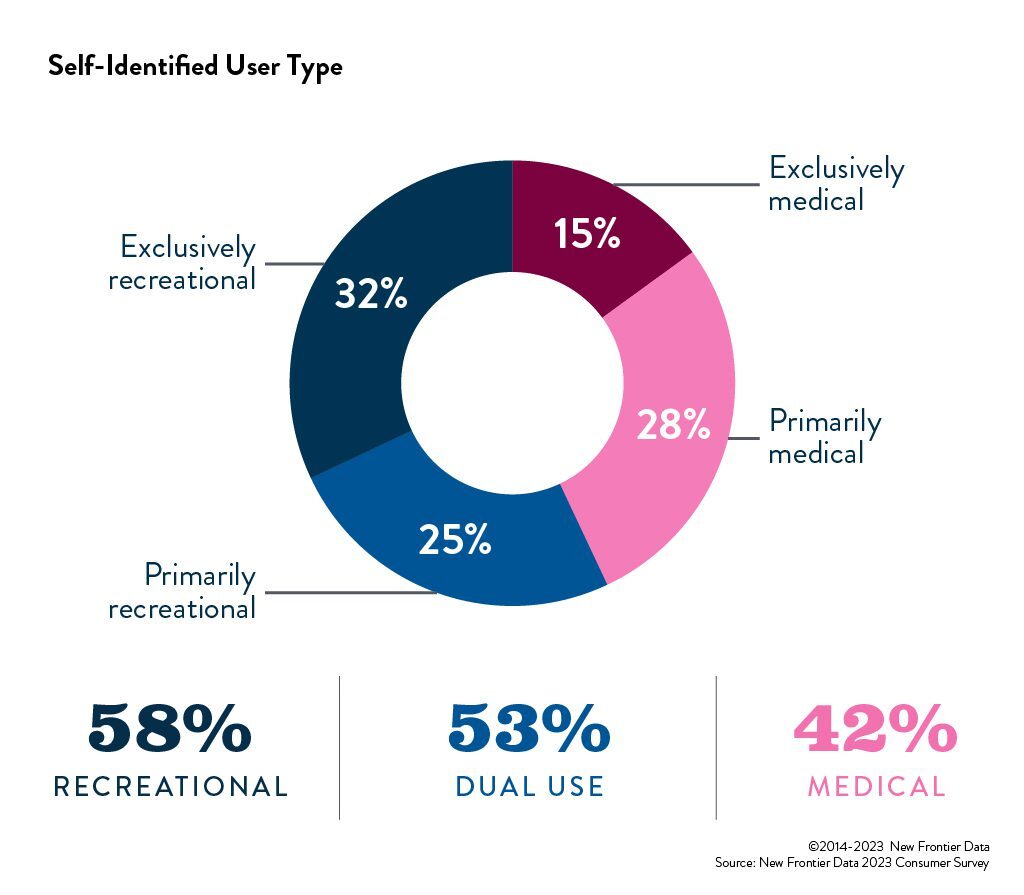
Cannabis as a wellness tool continues to dominate the landscape of consumption. Roughly 7 in 10 current consumers indicate that their use of cannabis is at least somewhat medical: 15% use cannabis exclusively medically, 28% use primarily medically, and 25% use primarily—but not exclusively—recreationally.
Among self-described medical consumers, the vast majority (94%) report that using cannabis has positively impacted their medical condition or symptoms. More than half (55%) report a significant improvement.
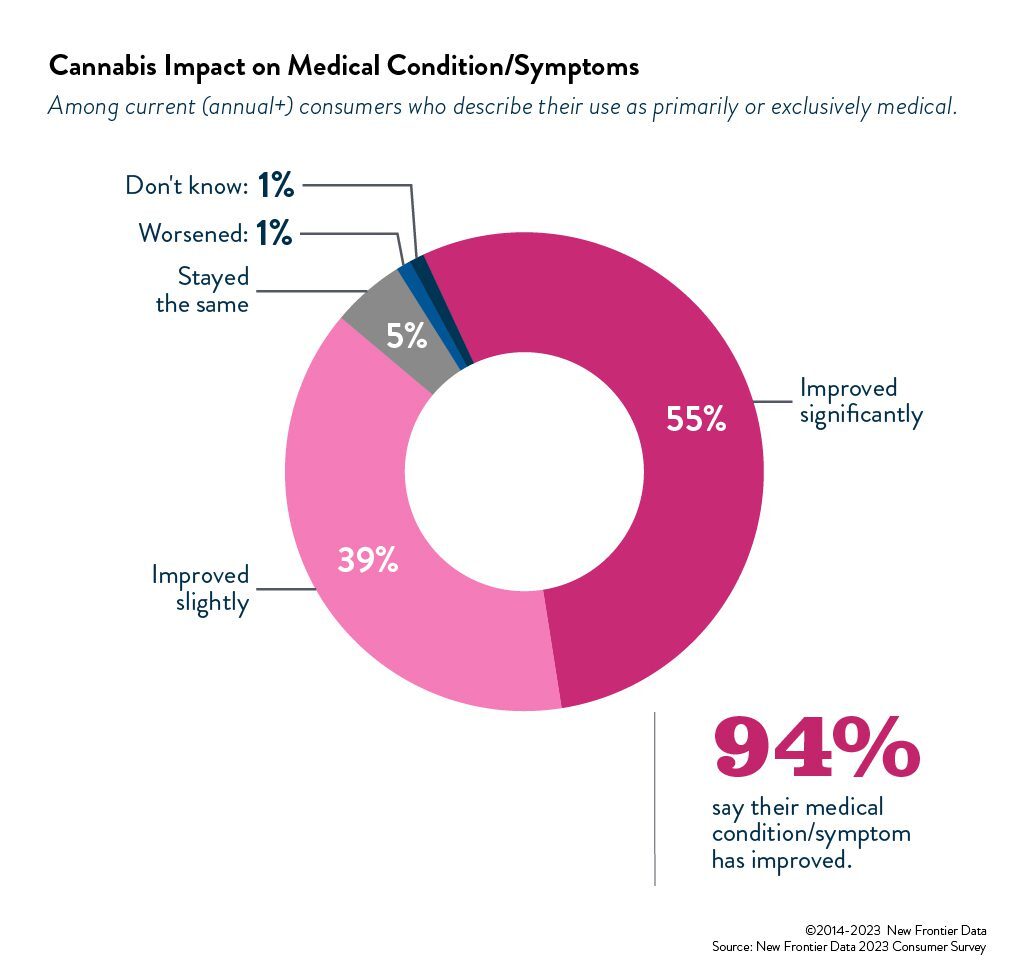
While cannabis patients have been experiencing these medical benefits for some time, the recent increase in societal acceptance of cannabis has meant consumers are more open about their use with people in their lives who don’t also consume cannabis: 93% of consumers say their friends know about their cannabis use, and 89% say their family knows about their use. Somewhat surprisingly, 48% report that their coworkers know about their use.
In light of destigmatization, consumers’ broadly positive medical experiences with cannabis are being shared with their friends, family, and even coworkers, providing for many Americans a personalized counternarrative to the propaganda-based prohibitionist messaging of cannabis prevalent during the last several decades.
Non-consumers find medical reasons the most persuasive when considering using cannabis
Exposure to loved ones’ positive experiences with medical cannabis, plus a more than a decade of seeing state after state legalize cannabis for medical use, seems to have legitimized cannabis as a medicine for many non-consumers. Becoming ill with a medical condition that might be helped with cannabis and being recommended cannabis by a doctor are the leading reasons non-consumers would consider using cannabis—or using it again, in the case of former consumers.
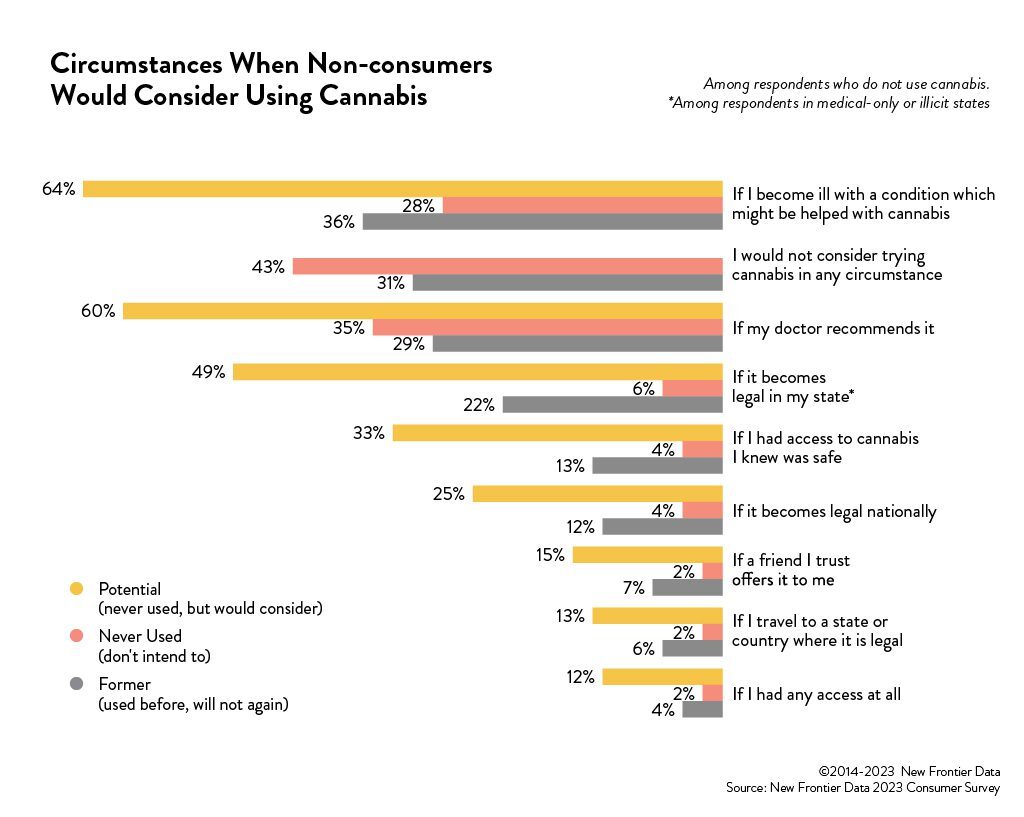
While most of the growth and interest in the future of the legal cannabis industry is focused on the adult-use market, medical cannabis is important to keep at forefront. Medical cannabis provides relief for millions of consumers, many of whom have had little success treating conditions with other remedies. And medical cannabis is compelling and compassion-inspiring among non-consumers, who broadly recognize the value in cannabis used for health and wellness, and empathize with medical consumers.

